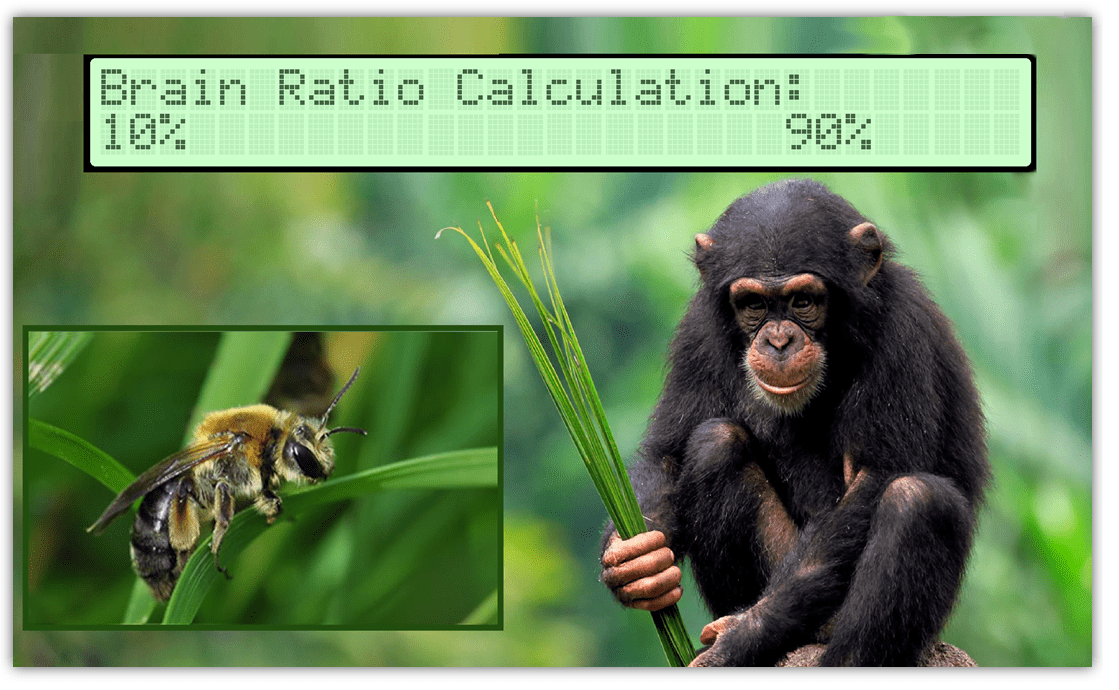When I was a child, I would pray to God every night in my bed, and sometimes during the day as well.
Whenever I prayed (at least as long as I can remember), I would make sure not to take a breath for the duration of the prayer, as the taking in of air seemed to be a selfish and disrespectful indulgence for a mortal to take when communing with the Most High.
In high school, I declared myself an atheist. Nowadays, most people would still consider me to be an atheist, even if I don’t use the term anymore.
Where did all of those religious feelings go?
I still feel them, occasionally. Often they can be stirred by experiences of great beauty, like when I enter a grand cathedral.

Like Notre Dame.

Or the Cologne Cathedral.
Or if I hear music of great reverence, such as Bach’s Great Mass…
…or John Coltrane’s Meditations.
You wanna push my Jesus buttons? Just put on the 10th Anniversary concert of Les Miserables and watch me break down at all of the religious and spiritual scenes. Or just give me a hit of LSD.
(TMI? TMI).
In the third part of The Righteous Mind, Jonathan Haidt spends some time talking about the feeling of spiritual transcendence, something that everyone can experience given the right conditions. It doesn’t have to be explicitly religious.
I had a near out-of-body experience, with no drugs involved, when I saw Animal Collective perform live in 2006. The intensity of the performance was so overwhelming that a feeling of transcendent euphoria took over, a feeling of being outside of myself and in the air. Most people have probably experienced this at some time or another, maybe at a concert, a congregation, or a stunningly beautiful mountain vista.
If you haven’t experienced this feeling of transcendence, well, get on it!
The reason Haidt talks about this is because he presents the case for humans as not just social creatures, but super-social creatures. His metaphor for this part is the human brain as 90% Chimp and 10% Bee.
We are close cousins to chimps, and it often shows in our behavior, but there are important aspects to human behavior that actually resemble “eusocial” insects such as bees and ants. Haidt goes into the practices humans use to trigger these super-social feelings such as transcendence and collective effervescence, in order to form moral collectives that can survive even across kin groups. Appropriately, he calls the mechanisms for group binding “The Hive Switch.”
Haidt doesn’t discount the very many ways in which humans are selfish, sneaky, hypocritical little bastards, just like our chimp cousins.
But he presents evidence for other special cases when we are strongly “group-ish” rather than selfish.
And in those moments of hivishness, we are either at our most heroic, or our most villainous, depending on the context, and sometimes depending on the perspective. In other words, this “bee-like” nature is responsible for our unique and commendable capacity for altruism and self-sacrifice, but also for war and genocide.
It’s an innovation of hominid evolution that has enabled our tremendous progress, as well as great turmoil and savagery.
The central lesson of this section is:
“Morality binds and blinds.”
Psychological mechanisms triggered by shared moral narratives, rituals, and signifiers bind individuals together into a coherent moral super-organism (i.e., a tribe). But those members are consequently blinded from opposing points of view, conflicting evidence, or anything else that might compromise the bonds of their hive.
Earlier, I modified Haidt’s rider and elephant to signify that the elephant is a king. For the rider, he is king, but at this point maybe it’s more helpful to picture the elephants as the super-fanatics at sporting events, painting their faces and making their tribal affiliations clear. The elephants move toward the symbols and chants of their own beloved team, forming a moral herd—and each press secretary chatters away dutifully to support their elephanatics, as ever.
As an aside, this part of the book offers a wonderful take on human religion and reasoning, one that sits well enough with Karen Armstrong’s ideas of human religiosity in A Case for God. And it also provides a powerful rebuttal to Dawkins’ more rationalist, anti-religious ideas in The God Delusion (and to his credit, Dawkins later praised Haidt’s book as “important” and “seminal”).
But what does this knowledge of human hiving actually mean for our own predicament in the world, beset as we are with seemingly irreconcilable moral and political divides?
How about the elephant and the rider?
Or the tongue with six taste buds?
How can we translate this theoretical psychological stuff to a more practical context? To actual problems and struggles in the real world?
Well, that’s for the next part.
Let the author know that you appreciated their article with a “heart” upvote!





Bees, eh?? Fun read while I eat my lunch – I’m chewing on plenty right now.
The bee analogy makes total sense though. Bees, ants – vast majority of them just do their job because that’s all they are wired to do. And they follow without question. Not everyone is genetically wired to be a leader. Many are content to just be led and not have to make the hard decisions. Nothing wrong with that…. until the small minority of folks willing to lead take advantage of their role simply to elevate their own ego rather than the common good.
I’d totally support an Insect Queen-like cage match during elections.
Elephants are always king because they RULE. Lol
Passing by tall condo buildings, it’s hard for me not to think of gigantic termite mounds made of stone, metal, and glass, teeming inside with thousands of humans. It’s kind of freaky!
It’s true that we all have this groupish psychology to some extent, and it’s also true that some people have stronger groupish tendencies than others.
Introverts, loners, and eccentrics tend not to be the “joiners” that others are, though even they have some need to be part of something bigger, and higher, than their selfish everyday concerns.
For most of my life I’ve had a paranoia about crowds, teams, and potential mobs. Not only did I refuse to go to most sporting events (still have never been to a Penn State game despite living there for 5 years), I didn’t even feel comfortable being part of the crowd when Obama came to campus to speak back in 2008–so I was a block or so away, and just listened from a distance.
This is definitely not normal, and part of it was rooted in past trauma involving mass bullying. But of course liberal culture, and especially punk counterculture, exacerbated the tendency in me, transmogrifying my social anxiety into some weird form of moralistic paranoia. “I won’t be part of the herd!”
I have since attended church service a few times, so that’s progress. And I understand the social benefits of being a sports fanatic (even I still haven’t been to a game since childhood). Sometimes it’s great to be part of a pack. Or hive. Maybe even a herd. As you say, not everyone is a leader, and even leaders may need to just follow sometimes.
Just like food – a life well balanced and in moderation. 🙃
So your personal ‘Happy Valley’ is a much more serene one probably than most PSU grads, ha! You might appreciate this then – for 17 years of my life I assumed it was a given I’d attend Penn State for college. Practically every relative was an alumni, including my parents. Then we move to Florida; PSU out of state tuition is now astronomical, and FL public universities had a scholarship program that meeting certain criteria in HS, attending a state university, and maintaining a certain GPA, the state would cover all of your tuition fees. Wasn’t really a choice at that point. So as I tell folks Univ of Florida was the least of all evils – ha!
Anyway, so my freshman year, Penn State winds up playing UF on New Years Day (probably the Citrus Bowl). I have a cousin who was a total sports geek like me only 10 years younger, who lives there in State College, he writes me a letter asking me who I’ll be rooting for.
I told him, don’t worry dude, Penn State all the way. 😁
Reminds me… I grew up in Kentucky, but I went to Duke. In 1992.
For those who don’t know what that means, it means Duke beat Kentucky in the Elite Eight in the greatest college basketball game of all time. I was a Kentucky fan, but I was already committed to Duke when this game took place. I became the most hated man at my high school, even if never in my life did I root for Duke over UK. However I didn’t care that much about being branded a traitor… I knew I was leaving Kentucky for good.
It’s a great place to love from a distance. 😉
Single-greatest play in the history of all sports.
He should have been ejected from the game after stomping on Aminu Timberlake.
Not that I’m bitter…
Timberlake’s teammates didn’t react enough.
Did you know that Rick Pitino started as an unpaid assistant coach at my alma mater? It wasn’t until the advent of the Internet that I learned this. When I watched Pitino lead Providence(!) to the Final Four, I had no idea. When UH was put on probation, Rick Pitino was the head coach for five games.
I misunderstood. I thought you were rooting for Duke. I’ll go with the buzzer-beater between Northwestern State and Iowa.
Much to digest from your newest, Phylum. But maybe we should ponder the person in the car over the person on the elephant.
Just this morning we were treated to a woman driving her Mercedes over 100 miles per hour into a crowded intersection, killing six people and injuring over thirteen.
If i’m riding an elephant and I think i’m king and the elephant thinks it’s king, there is only minimal damage I can do (basically straight ahead) but a person behind the wheel can do so much more damage in many ways,
And the car doesn’t think it’s king, it only does what it’s directed to do.
I’m always reminded after a horrific automobile accident of a Readers’ Digest story I read in the ’60’s.
The gist was if an alien presence presented itself to Earth and promised a mode of travel that would take hours of time off of travel, increase trade, save time and energy off your daily routine and basically make your life easier, would you trade a yearly sacrifice of fifty thousand lives to the aliens to make it so?
Hence, the automobile.
What other sacrifices have we made in our society to “move ahead”.
Looking at what happened during CO-VID 19 and it’s deniers (people still think it was a hoax) and the fact that they ignore the many deaths still happening, that they are, indeed, thinking they are king of the elephant (or car) and that anything that happens is deserved, not avoidable.
That’s horrible about the woman driving into those people. I guess her motivations and state of mind are not known at this time, but automobiles have unfortunately become a weapon of terror for deranged individuals convinced they are defending something higher. The current governor of Florida and possible presidential contender Ron DeSantis has even made it legal in his state for drivers to ram protestors blocking a path–another slippery slope into vigilante violence in the same vein as “Stand Your Ground” defense laws. In practice, they only work for certain types of people.
And yes, COVID denialism is made possible by hive-ish motivated reasoning, but it’s pushed into almost surreal levels of “sky-is-green” counterfactualism by a vast closed information system that much of the nation is now immersed in.
Bubbles like these pose the highest risks of cognitive distortions–as I will write about in the future. It’s not to say that such bubbles and some distortions can’t be found among progressives and liberals (even for COVID, there are some communities who took a severely all-or-nothing approach that was only very crudely tied to the available evidence), but the scope and extent simply cannot compare to the current right wing media ecosystem, which has resulted in an almost completely incompatible reality among citizens who might even be neighbors of one another. In other words, rival hives fighting for the same nest space. It’s scary.
Just catching up … I guess what I would say about my faith experience is that it helps me negotiate bee and elephant/rider states. Thinking about the broader contexts of life or attempting to look beyond my own interest/desire/need to those of others or of the common good helps balance those times when I must focus on self-care or self-interest.